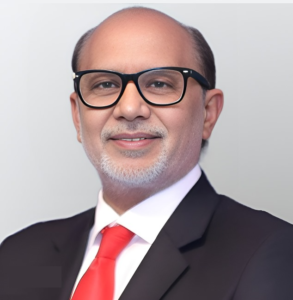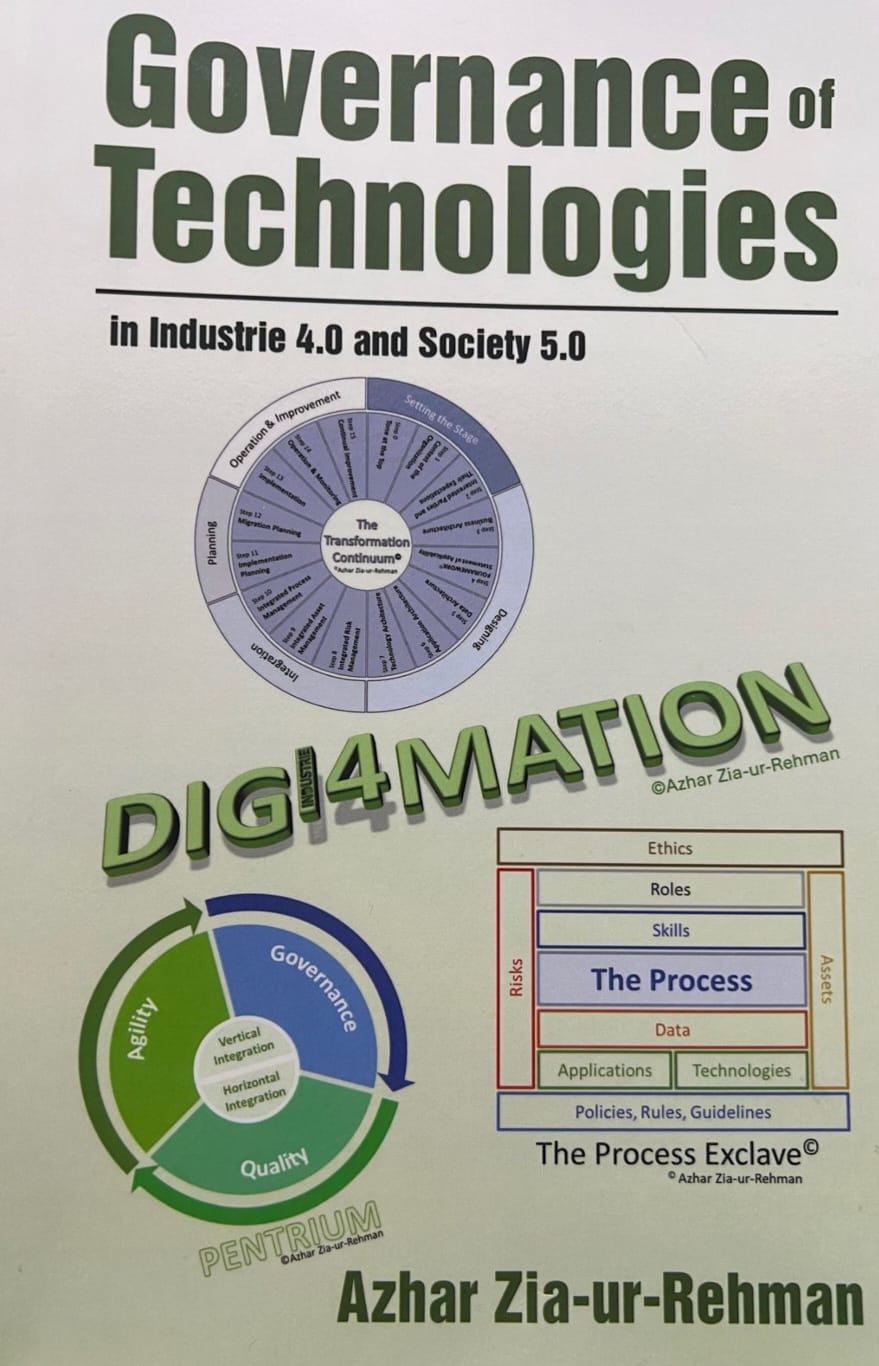
By Muhammad Arif
Introduction
The world has experienced multiple industrial revolutions, each transforming industries, economies, and societies. These revolutions have shaped modern industries, including oil and gas, from mechanization to digitization, digitalization and beyond. Industry 4.0—also called the Fourth Industrial Revolution or 4IR—is the latest phase in transformation, driven by disruptive trends including the rise of data and connectivity, analytics, human-machine interaction, and improvements in robotics and other emerging technologies.
In this era of Industry 4.0, the oil and gas sector in Pakistan faces new challenges and opportunities. To transform oil and gas businesses and align them with Industry 4.0, a separate governance concept called “Oil and Gas 4.0” has been developed. This article explores the necessity of adopting Oil and Gas 4.0 in Pakistan’s energy sector and highlights the lessons learned from Abu Dhabi National Oil Company (ADNOC), which has successfully implemented this transformation.
Oil and Gas 4.0: A New Paradigm
Oil and Gas 4.0 is part of the broader Fourth Industrial Revolution (Industry 4.0), referring to the digital transformation of the oil and gas industry. This transformation is driven by advanced emerging technologies such as artificial intelligence (AI), the Internet of Things (IoT), big data, cloud computing, automation, and blockchain. It enhances efficiency, safety, and sustainability while reducing operational costs and environmental impact.
In Pakistan, the adoption of Oil and Gas 4.0 presents opportunities for improved exploration, predictive maintenance, and real-time monitoring. However, this requires the integration of different technologies, systems, and processes to support corporate objectives. The governance and implementation of this transformation must align with the principles of “technology governance,” as introduced by Azhar Zia ur Rehman in his book Governance of Technologies (2024). Azhar’s framework emphasizes the need for synergized technology application, replacing outdated management theories with adaptive governance models.
ADNOC’s Experience in Oil and Gas 4.0
ADNOC has emerged as a global leader in adopting Oil and Gas 4.0, leveraging Industry 4.0 technologies to drive operational excellence and sustainability. ADNOC’s transformation is centered around:
- AI and Big Data Analytics
- ADNOC has integrated AI-driven predictive analytics across its upstream and downstream operations. This helps in real-time monitoring and optimizing asset performance, reducing unplanned downtimes, and enhancing operational efficiency.
- Thamama Subsurface Collaboration Center
- ADNOC’s Thamama Center uses AI, machine learning, and big data to enhance reservoir management. It allows the company to maximize oil recovery and improve decision-making using real-time data insights.
- Smart Control Centers
- ADNOC has implemented centralized smart control centers that monitor and optimize drilling operations in real-time, ensuring enhanced safety and cost-effectiveness.
- Blockchain for Supply Chain Management
- The company has adopted blockchain technology to improve transparency and efficiency in its supply chain operations, ensuring seamless contract execution and reduced transactional inefficiencies.
- Carbon Capture and Sustainability Initiatives
- ADNOC has invested in carbon capture, utilization, and storage (CCUS) technologies to reduce emissions and enhance environmental sustainability, setting a benchmark for other oil and gas companies globally.
The Need for Technology Governance in Pakistan’s Oil and Gas Sector
Pakistan can leverage ADNOC’s experience in Oil and Gas 4.0 by adopting a structured approach toward technology governance. The shift from traditional management theories to governance and now “technology governance” is necessitated by rapidly changing business dynamics and technological advancements.
With the speed and significance of technological advancements in the Fourth Industrial Revolution, the traditional management theories of Peter Drucker (father of management), Gary Hamel (business strategy), Michael Porter (company strategy), John Kotter (change management), Philip Kotler (marketing management), and W. Edwards Deming (quality management) are now left with limited efficacy and application.
Following the Enron scandal in 2001, the need for Corporate Governance became more urgent than ever. However, rapid technological advancements such as AI, IoT, big data, cloud computing, automation, and blockchain have dramatically altered the landscape under which corporate governance was initially envisioned.
In this era of digital transformation, Azhar Zia-ur-Rehman’s Governance of Technologies concept and practice offers a more relevant framework that effectively addresses the ethical, regulatory, and adaptive challenges posed by emerging technologies. This theory builds upon and enhances all previous traditional management theories by providing a structured governance framework tailored for technology-driven industries.
Key Aspects of Technology Governance
Technology governance refers to the policies, frameworks, and regulations that guide the responsible development, deployment, and use of technology. It ensures that technological advancements align with ethical standards, security protocols, and societal needs while fostering innovation.
Key aspects include:
- Regulatory Frameworks – Laws and policies governing data privacy, cybersecurity, and emerging technologies like AI and blockchain.
- Ethical Considerations – Ensuring that technology development aligns with human rights, fairness, and accountability.
- Public-Private Collaboration – Involvement of governments, corporations, and civil society in shaping policies.
- Cybersecurity and Risk Management – Protecting critical infrastructure from digital threats and cyberattacks.
- Transparency and Accountability – Ensuring openness in decision-making and corporate responsibility in technology usage.
Effective technology governance helps balance innovation with security, privacy, and ethical concerns, ensuring that technology serves society’s best interests.
Future of Technology Governance
As technology continues to drive global markets, the governance of technologies theory will likely shape future business models through:
- AI-Governed Regulatory Mechanisms – Automating compliance monitoring using AI.
- Blockchain-Based Transparency Frameworks – Enhancing accountability and trust in digital transactions.
- Stronger Public-Private Partnerships – Encouraging collaboration for ethical and sustainable technological advancements.
Conclusion
ADNOC’s successful adoption of Oil and Gas 4.0 offers a model that Pakistan’s oil and gas sector can emulate. By integrating AI, IoT, big data, blockchain, and sustainability initiatives, ADNOC has enhanced operational efficiency, reduced costs, and improved environmental sustainability. For Pakistan, transitioning to Oil and Gas 4.0 requires a strategic focus on technology governance, ensuring responsible innovation and regulatory compliance.
Michael Porter’s management theories, while historically influential, are being replaced by Azhar Zia ur Rehman’s Governance of Technologies to meet the demands of a digitally evolving world. This shift prioritizes ethical, adaptable, and collaborative governance structures over traditional competitive strategies. By adopting Azhar’s framework and learning from ADNOC’s experience, Pakistan need to create a robust, technologically advanced oil and gas sector aligned with the global standards of Industry 4.0
Pakistan is blessed to have such a world renowned living legend to guide, advise and guide whichever organization likes to align its business with the need of fourth indutrial revolution, may be it government, public or private entities, industrial concerns, oil and gas exploration and production companies in any economic sectors including agriculture. Its simple integration of most of the existing technologies, resources, manpower and systems under the able guidance and advise of Mr. Azhar Zia ur Rehman that successful transformation can be achieved. ( This article reflects author’s opinion and not necessarily the views of WNAM )
(The writer is a petroleum lawyer, consultant and a nationalist. He can be reached at [email protected])


